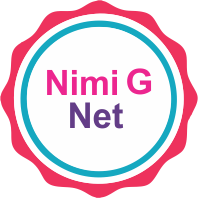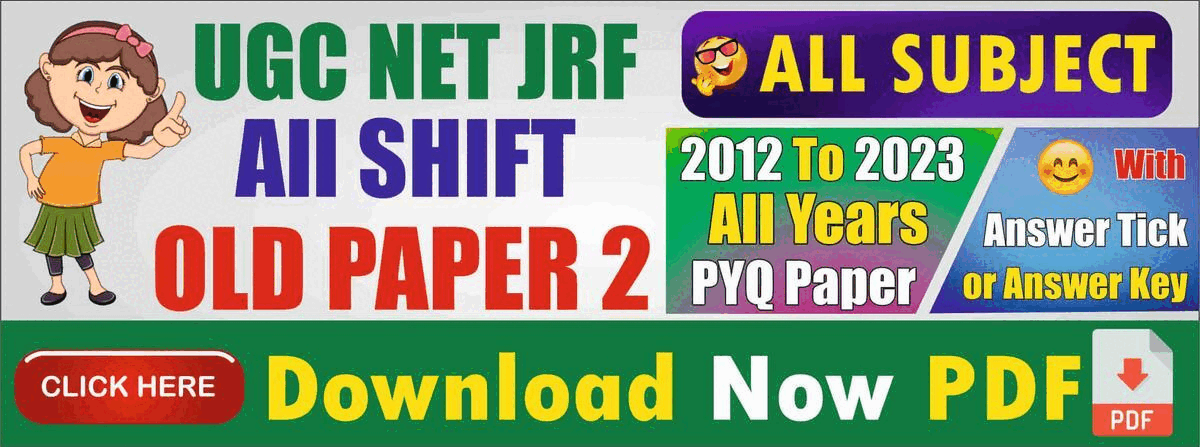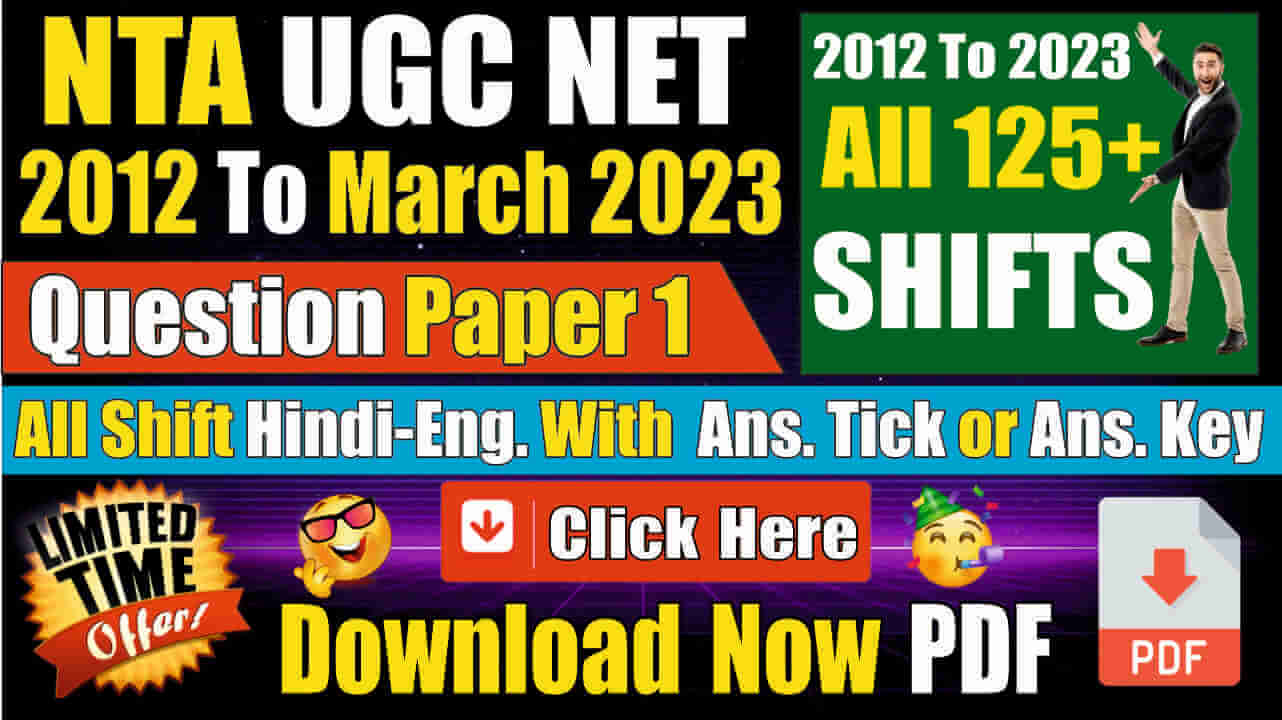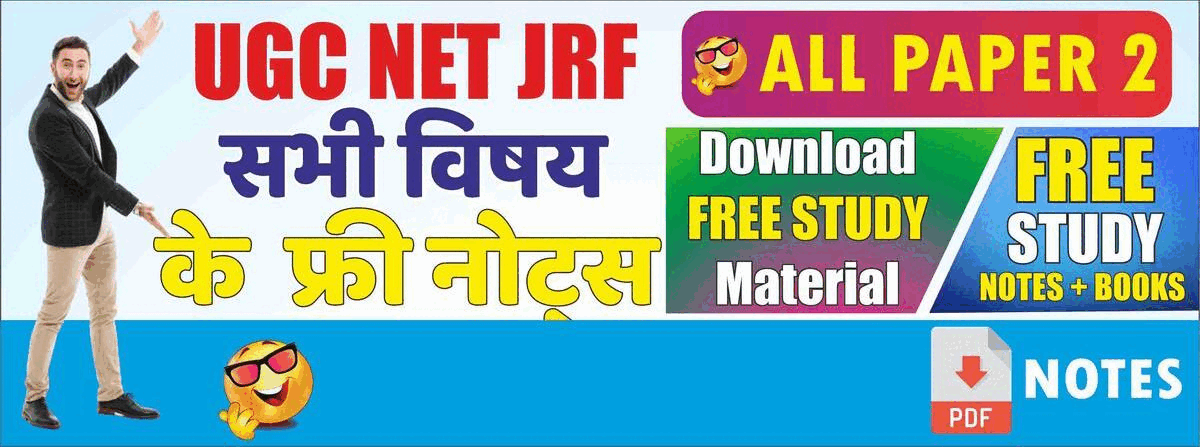Are you searching for the UGC NET Indian Culture Syllabus 2023 PDF Download? Look no further, as we have compiled all the important details and tips to help you prepare for the exam.
The UGC NET Indian Culture exam is conducted by the National Testing Agency (NTA) for candidates who wish to pursue a career in the field of Indian Culture. The exam assesses the candidates’ knowledge in the subject and tests their eligibility for lectureship and research fellowships.
If you are planning to appear for the UGC NET Indian Culture 2023 exam, it is important to have a thorough understanding of the syllabus and exam pattern. In this article, we have compiled all the important information you need to know about the UGC NET Indian Culture Syllabus 2023 PDF Download
UGC NET Indian Culture Exam Pattern 2023:
The UGC NET Indian Culture exam consists of two papers – Paper 1 and Paper 2. Both papers are conducted on the same day, and the duration of each paper is 3 hours. The exam is conducted online, and each question carries 2 marks. There is no negative marking for incorrect answers.
The UGC NET Indian Culture Exam consists of two papers: Paper 1 and Paper 2.
Paper 1:
- Duration: 3 hours
- Number of questions: 50
- Total marks: 100
- Type of questions: Multiple Choice Questions (MCQs) based on general aptitude, teaching and research aptitude, and current affairs.
Paper 2:
- Duration: 3 hours
- Number of questions: 100
- Total marks: 200
- Type of questions: MCQs based on Indian Culture subjects.
Both papers are conducted in a single session with no break in between. The candidates are required to appear for both papers to be considered for the selection process.
It’s important to note that there is no negative marking for incorrect answers in UGC NET Indian Culture Exam.
UGC NET Indian Culture Syllabus 2023: Download PDF
The UGC NET Indian Culture syllabus is divided into two parts – Paper 1 and Paper 2. Here’s a detailed syllabus for both papers.
Paper 1 Syllabus:
Teaching Aptitude:
- Teaching: Nature, objectives, characteristics, and basic requirements.
- Learner’s characteristics: Characteristics of adolescent and adult learners, and individual differences.
- Methods of teaching: Teacher-centered vs. learner-centered methods; Off-line vs. online methods.
- Evaluation systems: Elements and types of evaluation, evaluation in higher education, and grading system.
Research Aptitude:
- Research: Meaning, types, and characteristics.
- Steps of research.
- Methods of research.
- Research Ethics.
Reading Comprehension:
- Comprehension passages.
Communication:
- Communication: Nature, characteristics, types, barriers, and effective communication.
- Verbal and non-verbal communication.
- Classroom communication.
Logical Reasoning:
- Understanding the structure of arguments.
- Evaluating and distinguishing deductive and inductive reasoning.
- Verbal analogies.
Data Interpretation:
- Sources, acquisition, and interpretation of data.
- Quantitative and qualitative data.
- Graphical representation and mapping of data.
Paper 2 Syllabus:
Nta Ugc Net Indian Culture Syllabus 2023 in English
Unit – I
Meaning and concepts of Culture:
Traditional and Modern concepts of Culture-Notions of Culture in textual tradition, anthropological, archaeological and sociological understanding of the term culture. Elements of Culture, concept of Indianness and value system. Relation between culture and civilization. Historiography and approaches to the study of Indian Culture– Stereotypes, Objectivity and Bias, Imperialist, Nationalist, Marxist and Subaltern. Heritage of India and world’s debt to Indian Culture.
Unit –II
Sources of the Study of Indian Culture
Archaeological: cultural remains, Monuments, Numismatics, Epigraphy; Literary sources and Oral traditions; Foreign Accounts; Archival sources.
Unit – III
Pre-historic and Proto-historic Cultures
Stone age cultures- palaeolithic, mesolithic and neolithic; Proto- historic cultures – chalcolithic horizon, Harappan Culture- current debates on nomenclature and scripts, Town planning and architecture, art, social, religious and economic life. Evolution of India’s main language families.
-1-
-2- Unit –IV Vedic and post-Vedic Period
Early Vedic and later Vedic ideas and institutions: social, religious, economic, political and scientific. Post Vedic– Religious Movements and emergence of states, Shramana traditions- Buddhism, Jainism, Ajivikas and other sects. Education system and centres– Taxila and Kashi.
Unit –V
Mauryan and Post-Mauryan period
Ideas and Institutions: Social, Religious, Economic and Political. Ashoka’s Dhamma. Scripts- Brahmi and Kharosthi. Impact of Foreign Invasions. Art and Architecture. Literature- Arthasashtra, Manusmriti, Natyashastra, Panchatantra, Buddhacharit and Saundarananda. Scientific Achievements- Nagarjuna, Sushruta and Charaka. Education System and Centres. Sangam Age- Society and Culture. Contacts with outside world.
Unit – VI
Gupta and Post-Gupta period,
Ideas and Institutions: social, religious, philosophical, economic and political. Scientific Achievements- Mathematics, Astronomy, Metallurgy. Art and Architecture- evolution of Temples, Paintings of Ajanta and Bagh. Literature- Kalidasa, Banabhatta, Bharavi, Magha, Bhavabhuti, Dandi. Canonical Texts- Vishnu Dharmottara Purana. Education system and centres- Nalanda, Valabhi. Contacts with outside world.
-3- Unit –VII Early Medieval Period
Legacies of Classical ideas and emergence of new trends: Society- Proliferation of castes, outcastes, Vishti, Slavery. Position of women. Polity- feudalism. Economy- de-urbanization and agrarian system. Religion: Vedic-Puranic, Shramana tradition, Tantra, Bhakti movements. Philosophical thoughts- Shaddarshana. Philosophers- Shankara, Ramanuja. Pilgrimmage tradition. Art and Architecture- Nagara, Dravida, Bhumija, Vesara. Education system and centres- Vikramashila, Nalanda etc. Scientific achievements- Mathematics, Astronomy. Literature- Kalhana’s Rajatarangini and Al-Birunis’ Kitab- ul Hind. Contacts with Islam. Canonical texts- Samarangana- sutradhara, Manasara, Bhuvanapradeepa, Sadhanamala.
Unit –VIII
Sultanate Period
Delhi Sultanate – Ideas and Institutions: Political- Iqta; impact of the
new ruling class on society. Economic- market reforms, growth of
new urban centres, percolation of Islam in rural areas, resistance and
acceptance. Extent of slavery. Religion- Acharya traditions, Bhakti
tradition, Kabir and Ravidas, emergence of Sufism – Chishti and
Suhrawardy. Art and Architecture- emergence of Sultanate school of
architecture and paintings, regional styles. Religious and secular
structures. Literature – Sanskrit, Persian, Regional languages and
emergence of Hindawi. Amir Khusrau, Chandabardai. Education
system. Vijay Nagar Empire: Ideas and Institutions – political –
Nayankara. Art and Architecture, Literature. Educational institutions.
-4- Unit – IX Mughal Period
Ideas and Institutions: Polity – Mansab and Jagir, Watan Jagir,
Economy – Zamindari and Zabt. Society – Aristocracy, emergence of
middle classes, labourers, Slaves. Position of Women.
Religion and Philosophy – growth of Vaishnava Bhakti, Panthiesm
and Sufi traditions. Sulh-i kul, Naqshabandis. Gurunanaka, Chaitanya
Mahaprabhu, Meerabai, Narayanabhatta, Raghunandana. Literature-
development in Sanskrit, Persian and vernacular languages-
Tulasidasa, Suradasa, Abdur Rahim Khan-i-khanan, Abdul Fazl,
Faizi, Badauni, Banarasidas (Ardhakathanaka). Translation of
religious texts by Akbar and Dara-Shukoh. Art and Architecture–
Emergence of Mughal Schools; Temples of Vrindavan– Gobinda
Deva and Keshava Das Temple; Four Quarter Gardens. Introduction
of new education curricullum from Akbar’s period onwards Dars-i-
nizami. Religious syncretism in coinage, miniatures and structures.
Science and Technology. – Introduction of mechanical devices,
pindrum gearing and astrolabe; Sawai Jai Singh’s observatories.
Arrival of Europeans and their impact – Portuguese, Spanish, Dutch,
English, French.
Unit – X
Modern Period
Emergence of successor states and cultural developments: Awadh,
Hyderabad, Mysore, Marathas and Rajputana. Impact of Western
ideas and Indian responses: European studies of India; William Jones
and Asiatic Society; Fort William College; influence of Christian
missionaries. Emergence and Development of New Education
System. Indian Cultural Renaissance. Socio-Religious reform
movements: Reformists- Brahama Samaja, Aligarh Movement,
Ramakrishna Mission and Theosophical Society; Revivalist- Wahabi
and Arya Samaj Movement. Dalit Movements; Sikh reform
movements. Administrative Measures: legislation on women,
education and social evils. Literature: emergence of Shahr Ashob;
Urdu– Mirza Ghalib, Allama Iqbal; Hindi- Bhartendu Harishchand,
Prem Chand; Bengali-Bankim Chandra Chatterjee, Rabindranath
Tagore, Qazi Nazrul Islam. Science and Technology: emergence of
modern science and technology.
Paper 2 Syllabus Download Pdf:
Ugc Net Indian Culture Syllabus 2023 in English
Ugc Net Indian Culture Syllabus 2023 in Hindi
Preparation Tips for UGC NET Indian Culture Exam 2023:
Here are some tips for preparing for the UGC NET Indian Culture exam 2023:
- Understand the syllabus and exam pattern thoroughly.
- Make a study plan
- Refer to standard textbooks and study materials recommended for the exam.
- Practice previous year question papers and mock tests.
- Focus on time management and accuracy while attempting the questions.
- Take regular breaks and maintain a healthy lifestyle to avoid burnout.
- Join coaching classes or online courses if necessary.
- Stay updated with current affairs related to the Indian Culture field.
Important Points:
- The UGC NET Indian Culture exam is conducted by NTA for candidates who wish to pursue a career in Indian Culture.
- The exam assesses the candidates’ knowledge in the subject and tests their eligibility for lectureship and research fellowships.
- The exam pattern of UGC NET Indian Culture 2023 includes multiple-choice questions and is conducted in online mode.
- The marking scheme of the exam is +2 for a correct answer and no negative marking for incorrect answers.
- The duration of the exam is 3 hours, and the number of questions is 150.
- The UGC NET Indian Culture Syllabus 2023 PDF Download is an important document that provides a detailed outline of the topics that will be covered in the exam.
- To download the syllabus, candidates can visit the official website of NTA and click on the link provided.
- The syllabus is available in PDF format and can be downloaded for free.
- The syllabus is divided into nine units, each covering a specific topic related to Indian Culture.
- To prepare for the exam, candidates must understand the syllabus, make a study plan, practice previous year question papers, join a coaching institute, take mock tests, and revise regularly.
FAQs:
- Is there any negative marking in the UGC NET Indian Culture exam 2023? Ans: No, there is no negative marking for incorrect answers.
- Can I download the UGC NET Indian Culture Syllabus 2023 PDF from the official website? Ans: Yes, the syllabus is available for download on the official website of NTA.
- What is the duration of the UGC NET Indian Culture exam 2023? Ans: The duration of each paper is 3 hours.
Also Check:
Conclusion:
In conclusion, the UGC NET Indian Culture exam 2023 is a crucial opportunity for aspirants who want to pursue a career in the teaching or research field. To crack the exam, it’s essential to have a clear understanding of the syllabus, exam pattern, and prepare accordingly. With a comprehensive understanding of the UGC NET Indian Culture Syllabus 2023 PDF download and proper preparation, you can clear the exam with flying colors.





